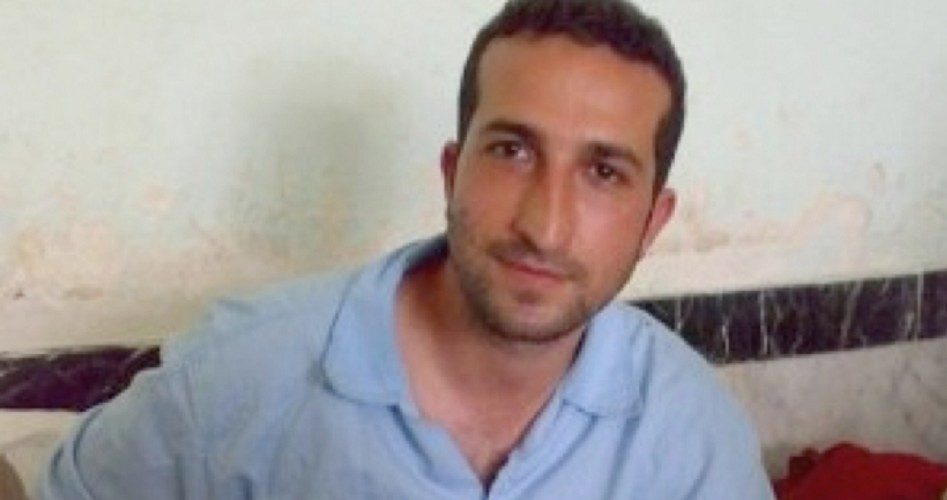
Even as Pastor Youcef Nadarkhani (pictured) awaits execution by the Iranian government, one of the lawyers who defended has had his own conviction upheld and will be serving nine years in prison.
As reported previously for The New American, Nadarkhani was an influential leader in the house church movement in Iran until his arrest in 2009. He was charged with apostasy, based on the notion that because he was born into a Muslim family, he was legally obligated to remain an adherent of Islam. Nadarkhani was quickly sentenced to death, but pressure from outside of Iran helped to delay his execution, while he, with assistance from his attorney, Mohammad Ali Dadkhah, endeavored to get the sentence overturned.
With Nadarkhani’s conviction upheld by what passes for a legal system in Iran, the pastor could be put to death by hanging at any time that it serves the whims of the Islamist regime. And the final decision to imprison Nadarkhani’s attorney sends a clear signal that the regime will take whatever steps it deems necessary to silence opposition in the future.
According to an article for The Guardian, the move by the Iranian government will effectively bring Dadkhah’s career to an end:
A prominent lawyer who worked on the case of a Christian pastor on death row in Iran for apostasy, which made headlines around the world, has been sentenced to nine years in jail.
Speaking to the Guardian from Tehran, Mohammad Ali Dadkhah said he had also been banned from teaching at universities or practicing law for an extra 10 years.
“I have been convicted of acting against the national security, spreading propaganda against the regime and keeping banned books at home,” he said. Iranian authorities have used such vague charges to incriminate activists and lawyers in recent years.
Facing a total of 19 years of punishment for the crime of trying to help a man avoid suffering death for following his conscience in matters of faith, Dadkhah is only the latest victim of a legal system in Iran which punishes attorneys for defending their clients. Again, as The Guardian reports:
Other prominent Iranian lawyers have also been sentenced to lengthy prison terms including Abdolfattah Soltani who was given an 18-year sentence in March. Like Soltani, Dadkhah was a colleague of Iranian Nobel Peace prize laureate Shirin Ebadi who fled the country in 2009 in fear of persecution.
Nasrin Sotoudeh, another acclaimed lawyer whose work against juvenile executions in Iran has been recognised internationally is also behind bars in Tehran’s notorious Evin prison. Some of the lawyers who have represented their colleagues in jail have also been arrested in recent years.
Dadkhah was associated with Iran’s Defenders of Human Rights Centre (DHRC), a rights organisation presided over by Ebadi. Other people involved with DHRC have also been jailed, including the 39-year old Narges Mohammadi.
The Observatory for the Protection of Human Rights Defenders, a joint programme of the International Federation for Human Rights (FIDH) and the World Organisation Against Torture (OMCT) on Thursday condemned the sentencing of Dadkhah as well as the systematic harassment by the state against the DHRC members.
“Several DHRC members have recently been subjected to judicial harassment and arbitrary detention, all the more so after the disputed 2009 June presidential election. Mr Dadkhah will be the fifth member of DHRC to be imprisoned,” a statement said.
Dadkhah’s purported “crimes”— acting against the national security, spreading propaganda against the regime and keeping banned books at home—are stated in such a vague way that it is hard to know precisely what the Iranian government imagined outside observers were to make of such a conviction. In all likelihood, world opinion was less a concern for Tehran than continuing to spread fear among those who might be inclined to resist its effort to stamp out criticism.
Dadkhah was originally convicted in July 2011, but it was only on April 28 of this year that his efforts to appeal the nine year sentence were rejected. The only leniency which the court has shown him was that the part of his sentence which involved his being whipped for his crime was replaced with a fine (roughly $1500 U.S.). The penalty for defending freedom of conscience in an authoritarian country includes a great deal of jail time, but it need not involve being flogged—just fined and deprived of one’s livelihood.



